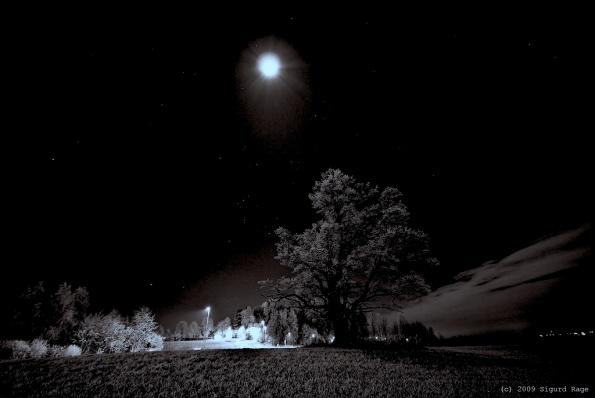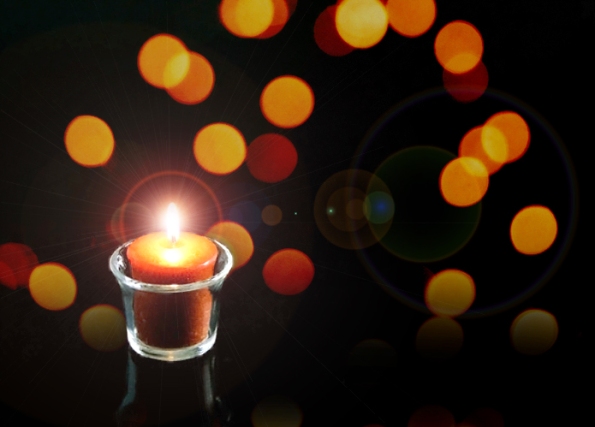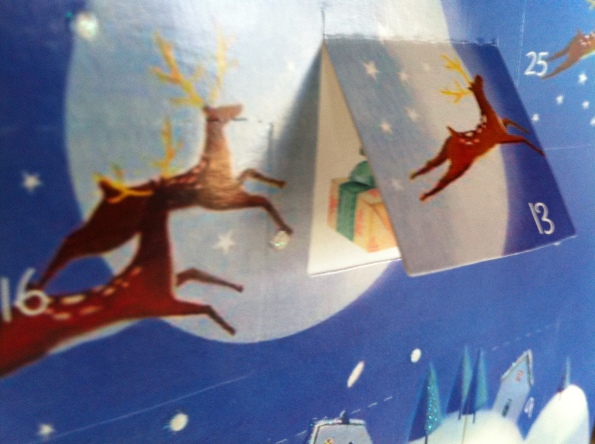During Advent we remember that the darkness of winter’s arrival is pierced with the Light of Life. Advent holds together ending and beginning, death and life, dark and light. Yet, this is not a balance of opposites. It is a living hope in the midst of a dying world.
In winter, the world comes undone. Spring’s blossoms have long died away. Icy dark nights overtake autumn’s afternoon. Snow covers the land and trees. This winter wonderland is beautiful…and deadly. Most of us live insulated from this threatening freeze, but the dark, cold night looms near us all.
I know the fear of waking in the death of night. Darkness presses heavy upon my chest. Sickening dread grips my throat and tightens my stomach. The specters of hopelessness haunt me. This present darkness sometimes escapes the witching hours, creeping into day. I wake to a world cringing in yet another nightmare.
Darkness, darkness, thick darkness covers the face of the earth. Whether it is the rage of war, the horror of violent crime, the suffocating poison of unspeakable speech, or the smothering night that grips the soul, darkness can seem more real than light.
Evil, evil, thick evil catches us unaware. Once I casually reached for a music magazine, flipping through the pages in search of the latest album reviews. A story of torture and violence interrupted the search. My pulse quickened. My body tensed. Night’s dread drowned the music.
Why? Why are humans so evil?
That question is dangerous. The prophet says, “The people who walked in darkness have seen a great light.”[1] Even as we question and wrestle with the horror of evil in our world, we also walk in darkness. The Apostle John says, “The people loved the darkness rather than the light because their works were evil. .”[2]
Those who have choked on darkness know a raging darkness within that terrifies more than the darkness without.
This is the great unspeakable truth that Advent exposes. The darkness within. We run from the light. We hide in the dark. Then we look at the evil in the world and question, “Why?”
The line of evil runs directly through the human heart.
Into this darkness, Light shines. Advent celebrates the night-shattering news that God is with us. Christ has come near. We sing of the blessed birth of the Lord in the Holy Night and Night Divine. He penetrates the dark night of human evil. Even the night is not night to Him. The Psalmist sings,
11 “Surely the darkness shall cover me,
and the light about me be night,”
12 even the darkness is not dark to you;
the night is bright as the day,
for darkness is as light with you.[3]
Jesus the Light of the World entered into the dark night of humanity. He exposed evil in us and around us. In His life, death and resurrection, He also overcame it. We wait for the full unveiling of His Light when death will die and the full Light of day will permanently overtake the night of evil.
Emmanuel, God with us, calls us to reveal the Light of His love in the midst of this dark age. Like Peter on the water, we may grow fearful and sink in dark waters. He is Present and we are safe.
Those dark waters make me think of swimming in the ocean with my dad one summer. On our last day of summer vacation, we went down to the ocean for one last swim. The storm clouds threatened on the horizon. My dad was not afraid. We road the humongous waves together. We played in the dark waters. I was not afraid because my dad was with me.
My mom frantically waved for us to come back to shore. As we headed toward shore, the undertow pulled us back. We struggled against the flow. For a moment, the waves threatened and overwhelmed me. I was not afraid because my dad was with me.
The darkness of our world threatens. Evil rages. We want to rage back. Our own echoing rage cannot stop the dark. Only the Light of His Love can overcome the dark. He is Present in the dark. Even as we wait and watch, He is here. Emmanuel. O Holy Night. O Night Divine.
Though the storms of evil rage, He is Present. We can love and even laugh, knowing that the undertow of evil will not overcome the Light of His Presence.
During these final moments of Advent waiting, during these dark hours of winter’s undoing, let us remember that His Light. He overcomes the evil within and the evil without. We follow Him into the dark waters of our world, into the pain, into the hurt, and into the fear, trusting in His Light of Love, Peace and Life Unconquerable.
[1] The Holy Bible: English Standard Version. 2001 (Is 9:2). Wheaton: Standard Bible Society.
[2] ibid. (Jn 3:19).
[3] ibid. (Ps 139:11–12).
Note: Image by Sigurd R (used by Creative Commons permission).









